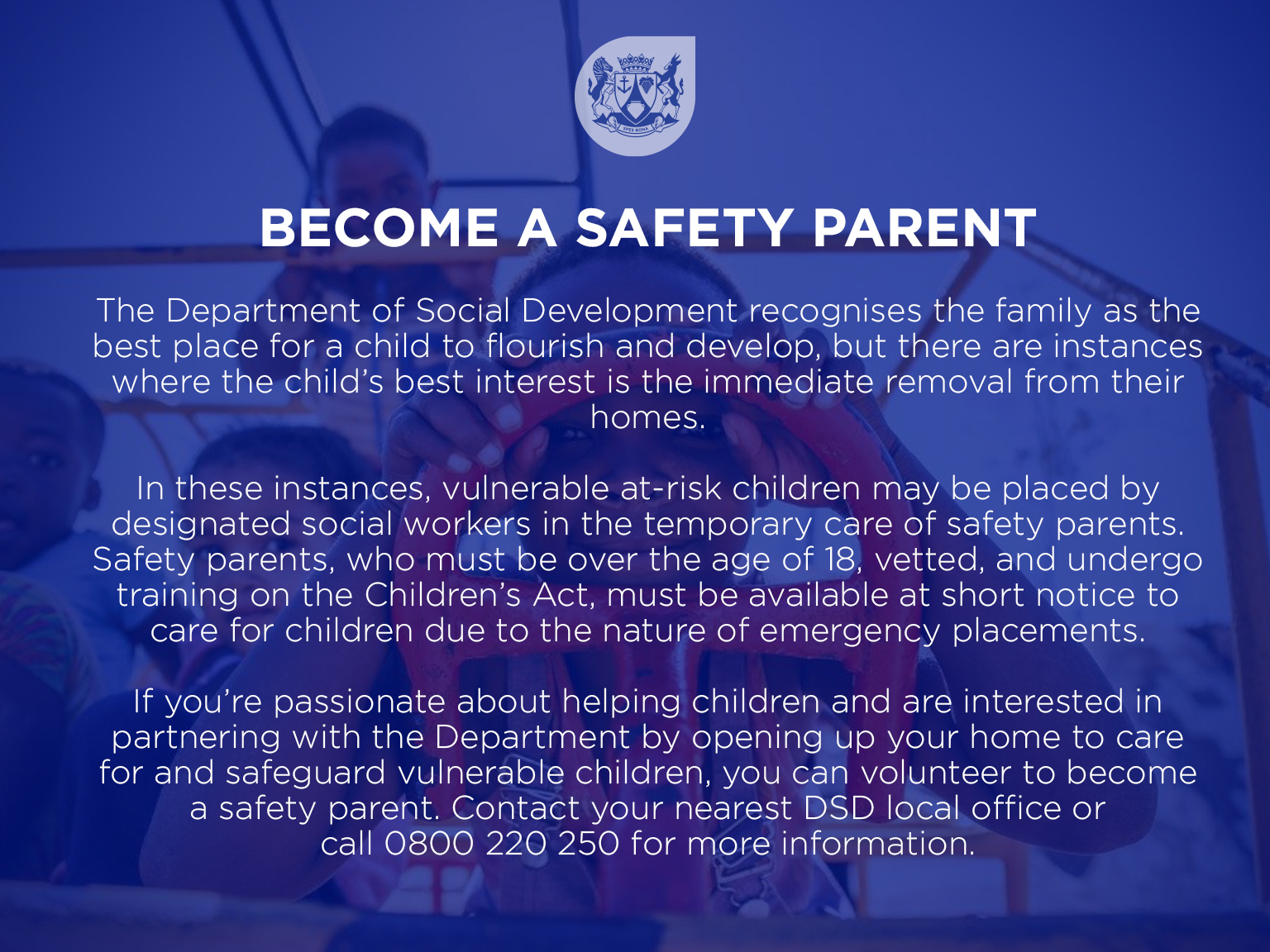
News
Help safeguard our children by becoming a safety parent
The Western Cape Minister of Social Development, Sharna Fernandez, is calling on members of the public to register to become a safety parent and help us in the fight to protect our children, by providing temporary places of safety.
Minister Fernandez said, “We believe a child’s immediate and extended family is the best place for them to flourish and develop. However, if we have reason to believe that a child is unsafe in their own home, the child or children will be placed in temporary safe care.
Temporary safe care, is an extraordinary measure that can be used by a designated social worker or police official where they believe, on reasonable grounds, that the child is in immediate danger.”
Minister Fernandez added, “We will send a designated social worker or police officer to remove the child from their home if there’s evidence that the child is being abused, neglected or exploited. The child will then be placed in temporary safe care, where they’ll stay pending the outcome of a formal court process.
Temporary safe care can be provided either by an approved person (related or unrelated) or a place of safety that is approved to deliver such a programme to children.”
What is a safety parent?
A safety parent is a fit and proper person, over the age of 18 years, who takes temporary care of no more than six children, except where the children are siblings.
If you are passionate about helping children and are interested in partnering with the Department of Social Development by opening your home to care for, and safeguard vulnerable children, you can volunteer to become a safety parent.
How to become a safety parent
Prospective safety parents must:
· have an interest in the wellbeing of a child at risk.
· have a police clearance and a Form 30 notification – this applies to all the adults residing on the premises of the applicant(s).
· have a Form 39 approval from the DSD to provide temporary safe care.
Due to the nature of the emergency placements, prospective safety parents should be available at any time and short notice.
What happens after I have applied to become a safety parent?
Applicants are carefully screened to determine if they are suitable to care for children. Once approved, the safety parent will receive training on the Children's Act, the roles and responsibilities of safety parents and how to care for vulnerable children who may have experienced trauma.
Once the placement of a child is finalised, safety parents are given a stipend and an emergency kit (e.g. in the case of a baby, nappies, and formula milk) and a basic daily fee towards the care of the child.
“I am is thankful to all of our Non-Profit Organisation (NPOs), Child Protection Workers (CPWs) and other key partners in the child protection sector, who continue to help us in our fight to create a safer province for our children. These partners include other spheres of government, civil society, business and labour, disaster management services, universities, the diplomatic corps, families (not least our own), the police and criminal justice system.
Only a whole of society approach, through the efforts of all spheres of society, can put a stop to the acts of violence being witnessed and experienced by our children.
I would like to urge everyone to continue helping us in our fight against child abuse and neglect.
It takes a community to raise a child. Let’s unite to protect our children,” concluded Minister Fernandez.
Contact information and support:
To sustain its pool of safety parents in the Province to provide this crucial service, the Department invites interested persons to volunteer to contact their nearest DSD local office or contact the DSD hotline on 0800 220 250.
Furthermore, if you suspect a child is being abused, neglected, or exposed to violence, we urge you to report it to the following channels:
- Calling the Western Cape Department of Social Development toll-free: 0800 220 250
- Calling the SAPs crime stop hotline: 10111
- Calling Childline: 0861 322 322; or
- Calling Child Welfare SA: 0861 424 453
Joshua Covenant Chigome
Spokesperson for the Minister of Social Development, Minister Sharna Fernandez
Tel: 021 483 9217
Cell: 083 661 4949


